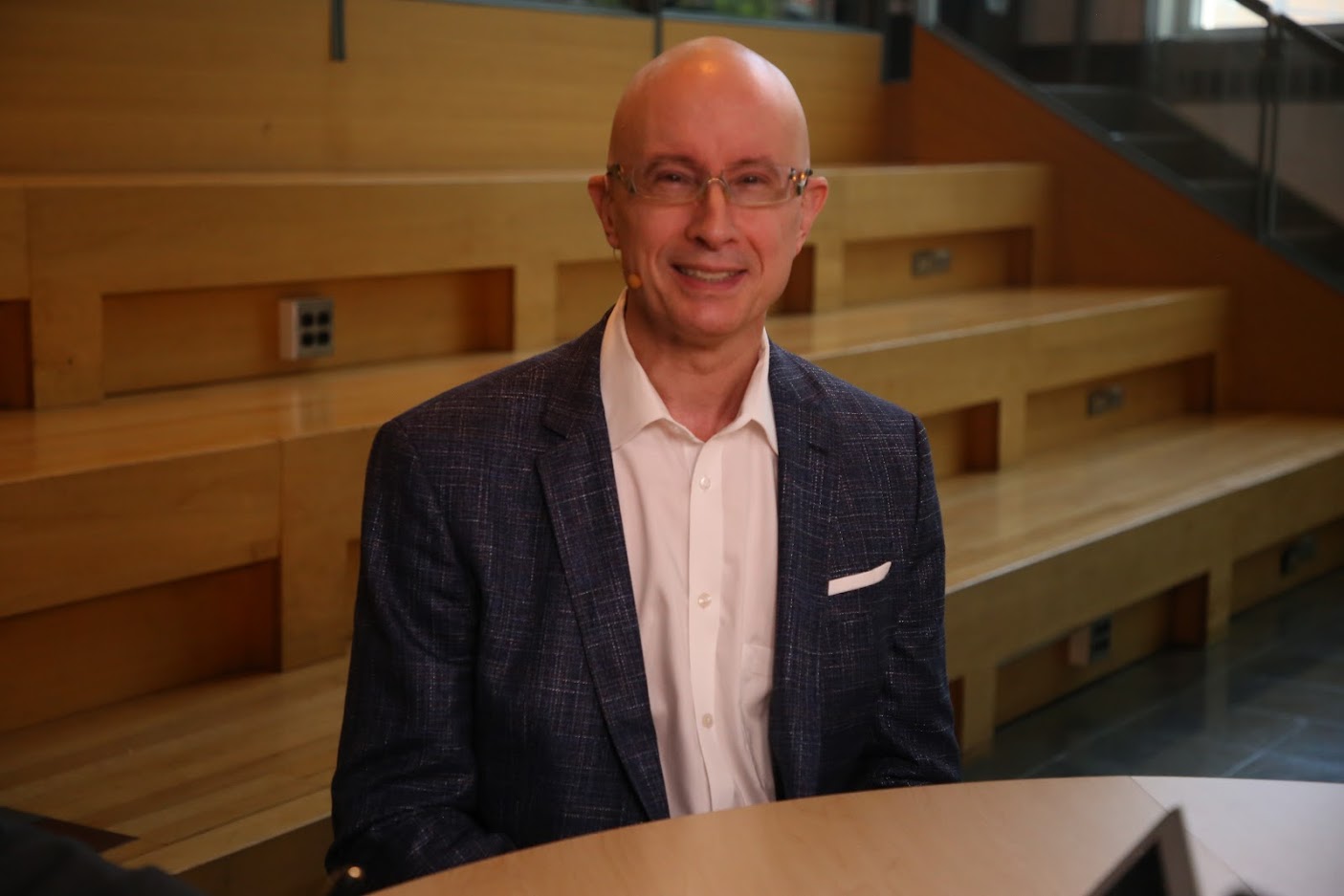 SECURITY
SECURITY
 SECURITY
SECURITY
 SECURITY
SECURITY
Sharing data is a major responsibility, even for those of us whose access to sensitive data is limited to the office fantasy football pool. When it comes to data held by the U.S. Department of Defense, the safest security approach might be to not share anything at all.
But sometimes keeping critical intelligence hidden is the most dangerous decision. Letting key personnel know essential facts in a timely and secure manner can make the difference between a military command that makes informed actions and one that is acting blind.
Taking on responsibility for when and how to share the U.S. defense data is the DOD’s chief data officer.
“This was my first opportunity to serve government … knowing that I could directly support national defense, knowing that I could make a direct, meaningful contribution,” said Michael Conlin (pictured), chief data officer at the DOD.
Conlin spoke with Dave Vellante and Paul Gillin, co-hosts of theCUBE, SiliconANGLE Media’s mobile livestreaming studio, during the MIT CDOIQ Symposium in Cambridge, Massachusetts. They discussed the role of the CDO within the DOD and the challenges of managing and sharing data securely (see the full interview with transcript here).
[Editor’s note: The following answers have been condensed for clarity.]
Gillin: Your background is primarily in the private sector, so I’m curious about your motivations for joining the Department of Defense?
Conlin: The chance to be the first chief data officer of the entire Department of Defense is an enormous privilege. The chance to bring commercial sector best practices in and really lift the game of the department…. It’s just too important. [There are] too many places I could see that we could make things better. I think anybody with patriotic bone in their body would have jumped at the opportunity.
Vellante: What does the chief data officer of the DOD do on a day-to-day basis?
Conlin: We are the single largest organization on the planet. We have the greatest scope and scale and complexity. We have the most dangerous competitors of anybody on the planet. So I have a range of challenges. Challenges around how do I lift the overall performance of the department using data effectively; how do I help executives make better decisions faster, using more recent more common data…. How do we help them become more sophisticated consumers of data and especially data analytics; and how do we get to the point where I could compare performance over here with performance over there on a common basis and compared to commercial benchmark.
Vellante: Can you talk about the DOD’s thinking on data security from a CDO’s perspective?
Conlin: The longstanding criticism of security people is that they think the best way to secure anything is to permit nobody to touch it. The clear expectation for me as chief data officer is to make sure that information is shared to the right people as rapidly as possible, and that’s a different philosophy. [But] because we embrace the zero-trust mantra, we’re directly concerned with defending the data itself.
As long as we defend the data and the mechanisms we use to let people share it, suddenly the tension goes away. Suddenly we all have the same goal. Because the goal is not to prevent use of data, it’s to enable use of data in a secure way.
Our litmus test is: Are we enabling the national defense strategy to succeed? The only reason to touch data is to enable the national defense strategy to be more successful than without it. And so we’re always measuring ourselves against that.
Vellante: What is your priority: People, process or technology?
Conlin: Everything starts from a process perspective, because if you automate a bad process, you just make more mistakes in less time at greater confidence. Obviously, that’s not the ideal!
But the biggest single challenge is people. It’s talent. It’s culture. Both on the demand side and on the supply side. We have pockets of excellence, and they can hold their own against any team, any place on the planet. But they’re pockets of excellence, and what we’re trying to do is raise the entire organization’s performance. So it’s people, people and people.
The products I don’t care about! I’m a technologist. I’m hands-on. The products are going to change rapidly. I make no emotional commitment to products, but the people, that’s a different story.
Here’s the complete video interview, part of SiliconANGLE’s and theCUBE’s coverage of the MIT CDOIQ Symposium:
THANK YOU